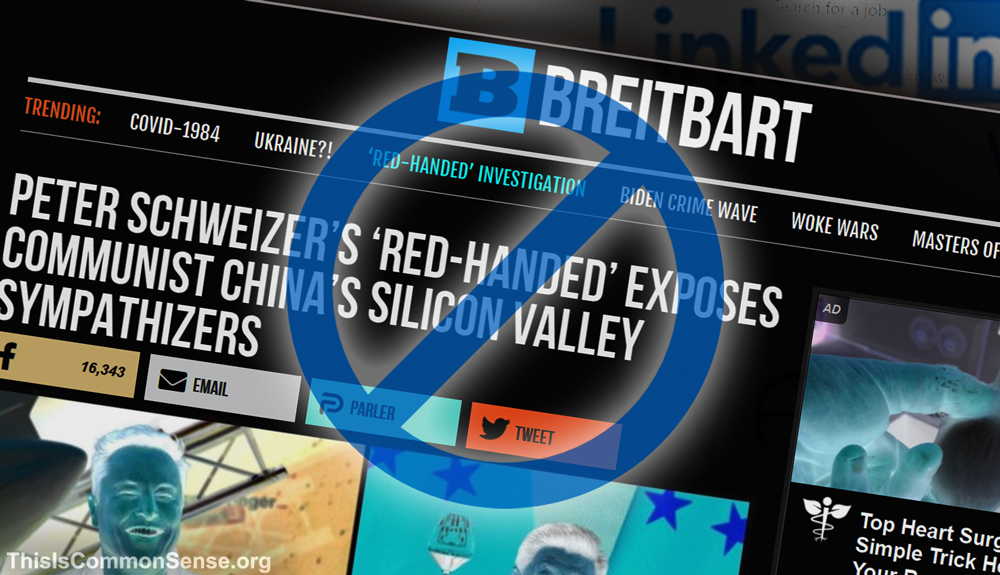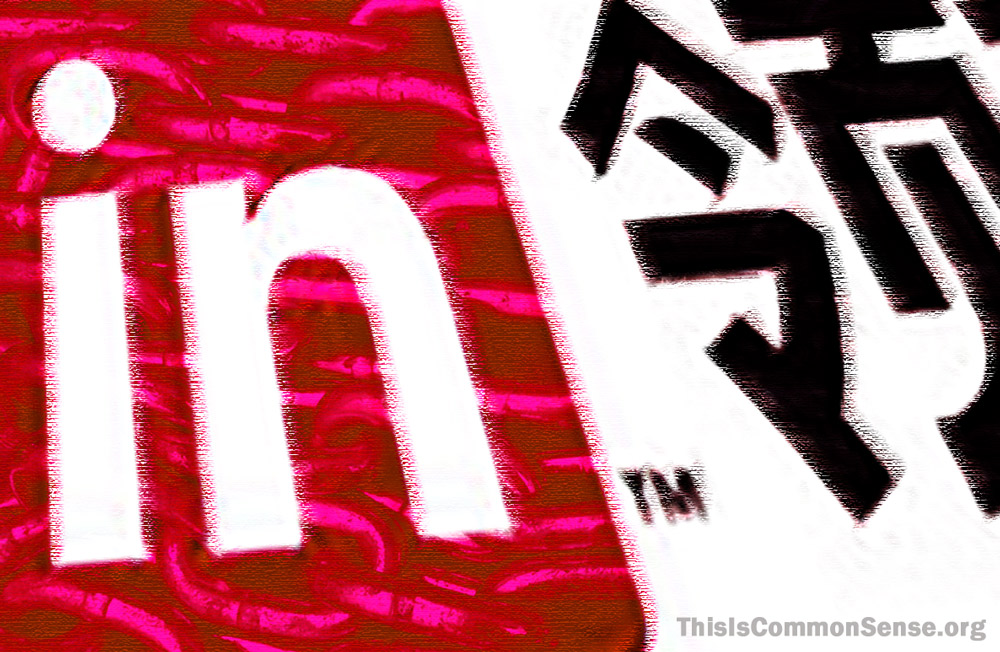How dare they?
In their eagerness to chastise tyrannical governments and Western lackey tech firms, some persons appear to go so far as to cite — get this — investigative reports.
That’s what one LinkedIn user recently did, anyway.
So no wonder Microsoft’s LinkedIn felt obliged to censor him for it.
The trouble-making investigative report? Peter Schweizer’s Red-Handed: How American Elites Get Rich Helping China Win. The LinkedIn user in question tried to share a Breitbart piece about the book: “Red-Handed Exposes Communist China’s Silicon Valley Sympathizers.”
In his own remarks, the censored LinkedIn user chimed in with a condemnation of China’s genocidal policies and American Big Tech’s abetting of the Chinese Communist Party.
LinkedIn says the user’s post violated its policies against “bullying.”
This is “not the first time LinkedIn has been caught censoring criticism of Communist China on its platform,” observes Breitbart.com. LinkedIn is now suppressing posts “that expose Big Tech’s own links to the authoritarian regime in China.
“Microsoft, which owns LinkedIn, is exposed in Schweizer’s book for working with the Chinese military on artificial intelligence research.”
I have the answer to this problem.
Before you say something on mainstream social media, ask yourself: “Is the thought I’m about to express something that the Chinazi government would approve? What about LinkedIn and other spineless Chinazi-government-appeasing social-media companies like Twitter, YouTube, Facebook? Would they approve?”
If not, take your heretical thinking to Rumble, Odysee, Teamspeak, Telegram, Gab, MeWe, and/or Clouthub, and express your thoughts there instead.
I dare you.
This is Common Sense. I’m Paul Jacob.
—
See all recent commentary
(simplified and organized)




